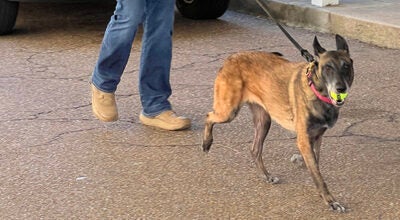Experimental road cover needs more work, county says
Published 12:00 am Friday, April 13, 2001
[04/13/01] An experimental mixture used to pave four gravel roads in September was expected to save Warren County money but the roads aren’t holding up as well as expected, officials said.
Freetown Road, Bell Bottom Road, Kirkland Road and Poole Road were covered with a process called “road mixing,” which combines asphalt with gravel and sand. The mixture is less expensive than asphalt.
The process had been used in Pearl River County with great success, so Warren County decided to try it as well, county road manager Rhea Fuller said. But the local mixture didn’t turn out as well.
“We were not able to get the kind of sand and rock Pearl River had,” Fuller said. “We had to use area sand, which was not quite as clean as it needs to be and maybe has some clay deposits. It created problems with bonding activity.”
Materials for the project cost $73,563.20, and the labor was performed by county road crews at a cost of about $13,000 from the existing budget. Fuller said regular paving could cost two to three times as much.
He said it would be too costly to transport the amount of sand that would be necessary from other locations. He also said sand used here was wet and crews were working against the clock with winter approaching, which could have created some of the problems.
“Pockets of wet sand have caused potholes,” Fuller said. “We would need to start working in the summer next time to make sure the sand has time to dry.”
Vernon Nettles, who lives on Poole Road, said he noticed that the job was being done in a hurry.
“The packers came through here around 40 mph after the asphalt had already been completely laid,” he said.
He said it also seemed to take forever for the road to harden.
However, Nettles said the mixture was a vast improvement over the gravel it covered.
“It’s definitely not as bad as it was before they paved it,” he said.
Fuller said he hasn’t heard any complaints from residents and that the county is committed to keeping the roads paved and plans to repair problem areas this spring.
“We see room for improvement but that’s to be expected,” board president Richard George said. “We’re in the process of looking into other alternatives that may work out better.”





